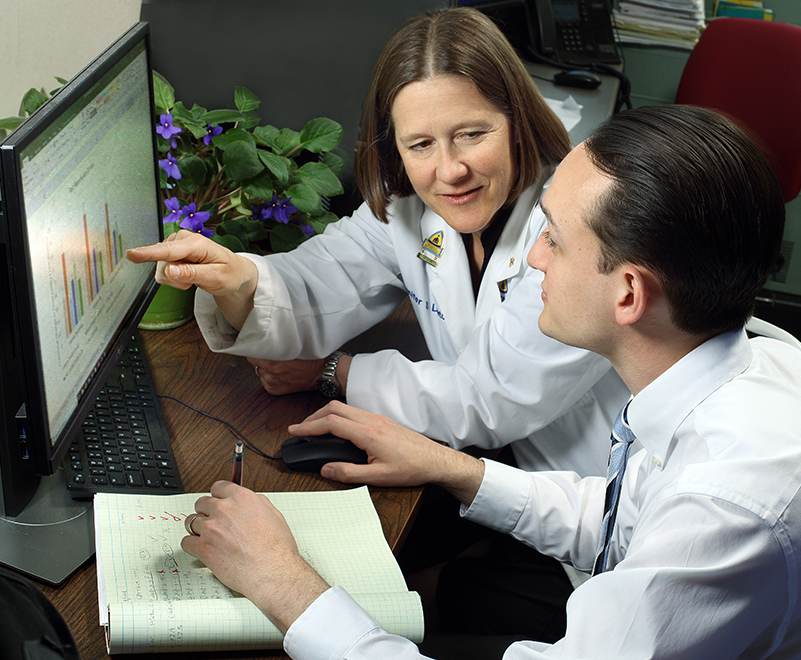Teaching Programs
Find Education and Training Programs Based on Category:
General Surgery Residency Program
Johns Hopkins general surgery categorical residents interested in cardiac surgery have the opportunity to spend two dedicated full-time research years in the lab. This experience is unique and invaluable, as it exposes residents to a variety of translational science and clinical outcomes research. Residents obtain skills in surgery and complex analysis for scientific writing. At the completion of their lab time, residents in the modern era have published, on average, over a dozen peer reviewed publications and have presented their research at prestigious national and international meetings.
Cardiothoracic Fellows in the Lab
The research lab supports the training and education of the cardiothoracic surgery fellows with hands-on “wet” labs and simulation exercises. Fellows practice one of medicine’s core teaching principles: “See one, do one, teach one.” First, they assist an attending surgeon performing a procedure. Then, they perform the procedure themselves. Finally, they teach the basics of the procedure to undergraduates and medical students.
Postdoctoral fellows entering the laboratory will receive education in grant writing and are encouraged to apply for sponsored funding including American Heart Association postdoctoral fellowships and NIH National Research Service Awards. In addition, they will be considered for NIH T32 positions in the Cardiology Training Grant.
Postdoctoral fellows entering the laboratory benefit from Named Philanthropic Research Fellowships (listed below) to support travel to meetings and publications.
- Cardiac Surgery Research Fellowships
- Irene Piccinini Investigator
- Hugh R. Sharp Research Fellow
- Martin and Vera Kohn Fellow
- Joyce Koons Family Research Fellowship
Download the 2021 Cardiothoracic Surgery Residency Program
Medical Students
Every summer, two or three rising Johns Hopkins second-year medical students are accepted to the laboratory on a competitive basis. Students are given their own clinical project in association with a cardiac surgery faculty member and the surgery residents in the lab at the time. Students develop mentoring relationships with both the attending surgeons and the lab residents. At the end of the summer, the students present their research to the Division of Cardiac Surgery and are encouraged to submit their research to national meetings and journals. They also participate in the lab’s current surgical research experiments, meetings and lectures, and learn basic operating skills and techniques.
View a list of previous medical students and their research
Undergraduate Students
The lab also participates in the Johns Hopkins University Intersession Program, a combined venture between the hospital and the undergraduate campus that exposes college students to various medical fields. The intersession program, which the Division of Cardiac Surgery began in 2002, serves to both stimulate interest in surgical careers and cultivate relationships between students and surgeons. The program features direct operating room observation and formal education sessions — lectures, suturing and knot-tying practice, etc.
View a list of previous undergraduate students and their research

